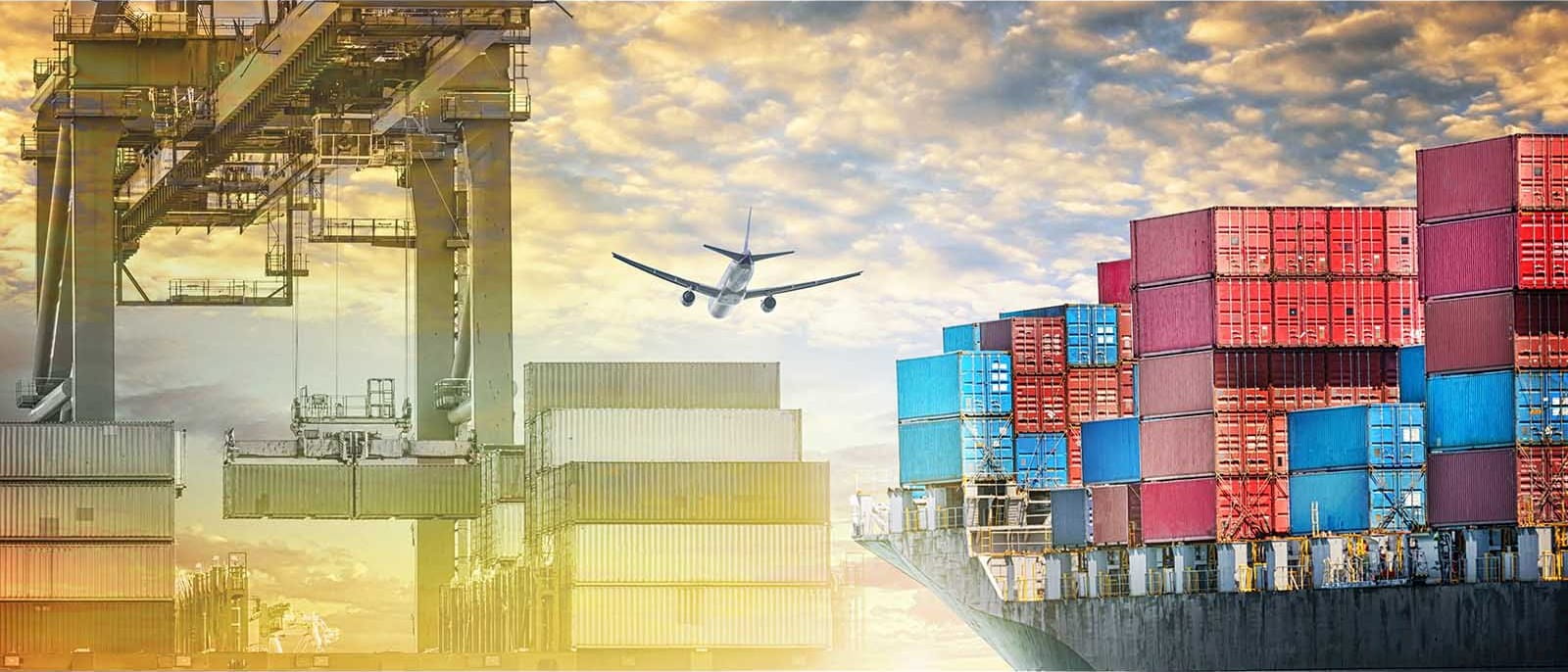Changes that were already happening in the logistics sector before COVID-19 were accelerated by the pandemic. Jason Sinclair looks at the deals moving products from A to B.
Anyone who has driven on the M1 between the East Midlands and London will have noticed the incremental changes to the logistics industry. Slate-grey warehouses sit on either side of the motorway and, despite being camouflaged against the sky, have literally changed the landscape. Add to this the preponderance of Amazon Prime, DPD and supermarket delivery vans, reflecting new consumer expectations and business models, and you realise that UK logistics is entirely different from its pre-pandemic form. And within those changes, with more than 60,000 road haulage businesses large and small registered in the UK, M&A has played its part.
Consolidation, opportunistic acquisitions of stressed businesses and tech acquisition have all been drivers to M&A activity in the sector, and macro factors around interest rates and the availability of capital are leading to a release of pent-up supply and demand. Stuart Sewell, KPMG corporate finance managing director, who leads on transport and logistics, has seen deal activity in recent years from “a full range of buyers: overseas interest, UK consolidation and a bit of private equity as well.
“Logistics has historically not been a core market for private equity,” he says, given its traditionally slower growth rates and tight margins. “But on a case-by-case basis there are still real innovators who demonstrate clear differentiation between themselves and their competitors.” Tech investments, which can improve efficiency and customer experience, are also popular as a private equity play. Meanwhile, motivations for overseas acquirers “boil down to pure geographic expansion for either existing services or new offerings”.

Corporate UK buyers are also consolidating smaller companies, and the pricing and financing aspects of logistics deals are influenced by interest rates. The evolution of supply chains and warehousing has led to more modern, automated facilities, with supply chains adapting in turn.
“The proliferation of warehousing has been a five-year trend, going back before COVID,” says Sewell, and while e-commerce growth has slowed in the past 18 months, it will continue to “reshape the UK logistics footprint”.
Other changes are noticeable on the roads, he points out. “What was the Eddie Stobart Group is now owned by Culina, Norbert Dentressangle by XPO, which itself then demerged into GXO and XPO and numerous smaller independents consolidated by Kinaxia. Part of the changes you’ll see on the roads is the branding leaving the market as those transactions take place. You will see a lot of transport businesses going around that have the Culina logo alongside it.”
Market disruptors
Amazon has been disruptive in UK logistics for more than a decade. Its significance in warehousing has turned into similar investment on transport, but the “last mile” delivery is undertaken by sub-contractors.
“A lot of the deals, though, are strategic deals with large corporates,” says Sewell. “Interest rates and debt availability are going to play a part but are not likely to be deal breakers. PE-backed businesses looking for buy-and-build, prevalent in the US and increasingly in Europe, for example, are Schneider and Janssen. They are, of course, impacted by the cost of debt, but they remain actively looking for opportunities and deals. The bigger impact of the cost of debt is that there have been some high-profile casualties in the past couple of years.”
These “turbulent market forces”, as a recent McKinsey survey into 250 global shippers and logistics providers puts it, “are compelling companies to transform their logistics functions for greater flexibility, predictability, efficiency and resilience”. The most important message, according to the consultancy, is that “now is the time to invest in logistics technology”.
And many logistics businesses are. Sewell sees automation, robotics, warehouse and transport management systems and data-based telematics as being “very active areas”. Historically, he says, these traditional, heartland businesses “haven’t led the UK industry in tech”, but now he’s seeing companies developing and acquiring tech for interfacing with customers, undertaking transactions and optimising the availability of freight space.
“And with the changes to retail supply chains, logistics companies’ customers are increasingly more tech-orientated,” he adds. Software solutions developed by the likes of DPD have transformed consumer expectations, but have also given it the scope to work at maximum efficiency.
ESG is behind some of the deal theses in the sector. Electrification of fleets is proving a driver of M&A in the logistics sector. Last February Fleetcor acquired EV charging business Mina and in June DMN Logistics acquired JLL for its EV logistics business, both for undisclosed sums. And in October Infinium Logistics acquired three new sites for its EV fleet charging real estate fund.
Simon Davies, corporate finance partner at FRP Advisory, also highlights the growing importance of technology, particularly with AI “being utilised to add efficiency to complex organisational structure”. Davies is also seeing foreign corporates as the major players in the M&A market as confidence increases and supply becomes available. “Last year was difficult for M&A,” he says, “but things that were slow and sticky are beginning to be let loose now. Sometimes the same buyers had that pause last year but are now back on to complete. We’re also seeing new processes starting where trading’s better – there’s a better forward trajectory to excite people, but also the buyers now have more confidence.”
Scale is key in the logistics market, and the push for that scale is driving much of the deal process, where “over the past five years there are a lot of businesses ripe for consolidation, particularly as new regulations come in,” says Davies. “Remember that these are often low-margin businesses, but if you can get the scale then you can drive efficiencies to get those margins up.”
Private equity drivers
For all those buyers, the market needs willing sellers, and the macro environment is seeing more vendors explore the market, says Davies. Malcolm Kpedekpo, an investment partner and logistics specialist at Panoramic Growth Equity in Glasgow, sees the resulting corporate consolidation strategies in the sector as both a trend and a challenge.
“Technology is a massive factor,” he says, “and ESG (environmental, social and governance) is a big factor coming down the line. And with such a fragmented sector where there are so many SMEs, buy-and-build strategies are commonplace, with the benefits of economies of scale and higher margins being attractive to market players, while it can also provide a solution to succession issues.” That’s a recipe, he says, for a constant stream of M&A.
Panoramic, along with Maven Capital Partners, recently backed a management buy-out at freight management, distribution and storage firm Bullet Express. Kpedekpo paints a picture of both organic and geographic buy-and-build growth, “picking up businesses that provide one service and offering their clients a multi-service capability”.
In 2019, TLT advised logistics start-up Huboo on a £2.1m investment. The e-commerce fulfilment and storage company was only founded in 2017. In 2021, TLT advised it again on a £14m investment from Stride VC and Hearst Ventures, as well as previous investors Maersk Growth, Episode 1, Ada Ventures and True Capital.
“There are still a lot of providers out there, a lot of trucks on the road,” says Kpedekpo. “Amazon is driving innovation in the sector,” but is adding to capacity and redefining expectations rather than forcing existing players out. “It’s still a good market to invest in,” he says, pointing out that one in three investments is through private equity.
Logistics is a more complex world than most motorway travellers realise. The warehouses need the optimum level of stock to work efficiently, the trucks need to be in exactly the right places to maximise their loads, and the solutions to these problems are wrapped up in technology and scale. It’s little surprise that it’s these roads to the future that are attracting M&A.
Driving forces
Simon Davies
FRP Advisory
“As chairman of our international network, joined with 40 countries and 40 firms, I get a sense of how those markets are working, and we see Scandinavia very active, but the next most active is the UK. The year before last, 50% of our strategic sales were to overseas parties, last year 25-30%, and this year I think that will increase, but in logistics, the UK is a central hub for people coming into Europe. The US still sees the UK as its bulkhead into Europe and to set up a base here is to get into Europe.”
Malcolm Kpedekpo
Panoramic
“I think North America has probably gone earlier in terms of vertical integration – customers buying logistics businesses to bring it in-house. There have been a few in the UK – Marks & Spencer bought one last year, which may be the start. That could be a trend that’s coming but isn’t quite here yet. As you’d expect, a lot of these things start in the US, which is probably the idiosyncrasy that the UK market has."
Stuart Sewell
KPMG
“Overall, we could argue we’re idiosyncratic in that we’re a really small geographic space. And the amount of freight moving by rail in Europe compared with the UK is very different. We can’t escape from a road-based logistic structure any time soon. We have one of the most developed e-commerce retail sectors in Europe. That means the last-mile parcels industry is often at the forefront of service and innovation. The UK market has been one of the better markets because it has high service expectations. I think it’s still seen as a good country for logistics, service development, innovation and quality operators.”

